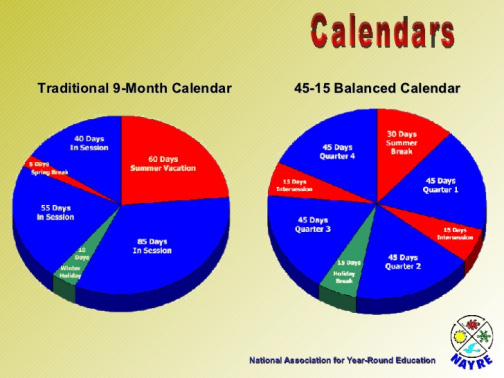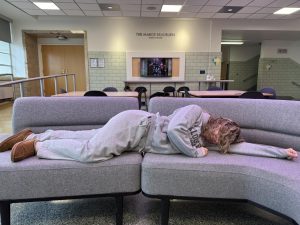Will Year-Round Schooling Create Needed Change or Utter Disaster?
The debate on year-round schooling creates an enormous controversy throughout the U.S. schooling systems.

June 2, 2020
Should the U.S school system consider a year-round school year? Parents and teachers of the U.S have been having this debate for quite some time about whether or not their kids should attend classes six to nine weeks at a time, with two to four weeks, or stick with the normal school calendar.
The disturbance to people’s current nine-month schooling plans seems evident. Few people like this kind of change unless it results in unparalleled success rates, which the year-round school debate has yet to uncover.
People of the U.S. that mention year-round schooling and are most likely to get groans from kids and teachers or jokes from parents about free summer camps, but people continue to discuss the year-round school debate because people feel strongly about improving education.
According to a 2014 congressional report, studies say that there are two types of year-round schools; single-track and multi-track schools. But what are single-track and multi-track schools? Single-track schools are aimed at restraining summer learning loss and providing blocks of time that could be used for redress or improvement activities. On the other hand, multi-track schools are designed to expand capacity without having to build a new school or install portable classrooms.
There are pros and cons to having a year-round school.
As stated by a survey from the University of Texas Arlington, researchers show some of the benefits of having a year-round school. These benefits include “saving money on school facilities and staff resources” and “reducing class sizes and overcrowding in classrooms” and “preventing student and teacher burnout.” All of these benefits make sense, but there are always challenges that follow.
As for the challenges of a year-round school, a review from the National Education Association mentions that year-round schooling does see some problem.
“(It) could cause students to forget information just as easily with a three-week break as 10,” said the NEA report. “Therefore, teachers on a year-round system end up with four periods of review instead of just one at a new school year.”
More arguments to prevent year-round schooling continues by saying, “With multitracking, parents could have students at the same school on different schedules, band and other extracurricular programs can run into problems scheduling practices and competitions, which often take place during the summer months.”
With all this said, the debate has two sides to this argument on whether online schooling is the right move, or if it is a mistake.
School administrators considering year-round education should identify their goals and explore whether a new calendar can help achieve them. When performing any significant change, involving all stakeholders in the decision and the process improves the outcome. If students, teachers, and parents don’t support a new program, a transition could be difficult.





